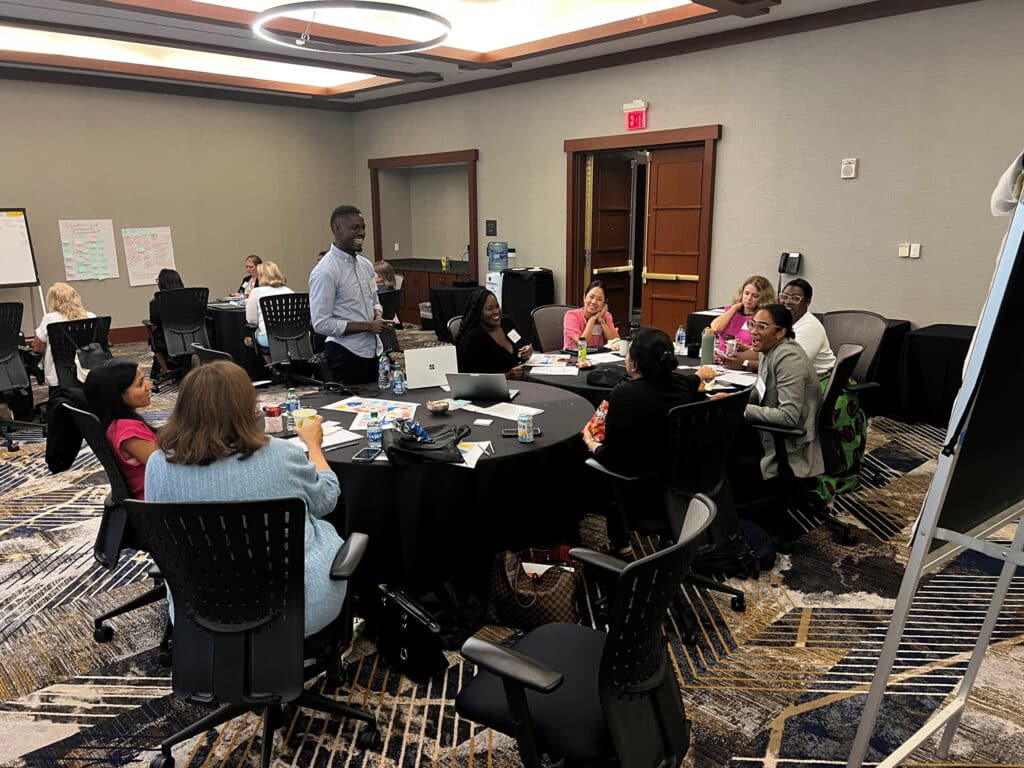

In 2022, HOPE for Georgia Moms was tasked with creating a 5-year strategic plan to improve maternal health in the state. The Strategic Plan, submitted Sept. 2024, starts with an overview of existing maternal health initiatives, listing successes as well as gaps or weaknesses in what is happening across programs and policy. The document also introduces members of the newly formed Georgia Maternal Health Task and states the goals of HOPE for Georgia Moms, which is the name given to the State Maternal Health Innovation Program. And finally, there is an Action Plan for how strategies affecting direct clinical care, policy, data, and community engagement will make a difference in maternal mortality and health equity.
Some focus areas for HOPE for Georgia Moms in Year 2 are maternal cardiac signs & symptoms, recognition of doulas, data systems for maternal mortality and morbidity, and maternal mental health.
Cardiac Conditions in Obstetric Care
Cardiac Conditions is a leading cause of maternal death in Georgia. The combination of cardiomyopathy and cardiovascular/coronary conditions accounted for 23% of maternal deaths.
Focus for Year 2 is to:
- Increase the number of delivering hospitals in Georgia that are engaged in the Georgia Perinatal Quality Collaborative (GaPQC) Cardiac Conditions in Obstetric Care (CCOC) Aim Initiative through the GaPQC.
- Increase the implementation of cardiovascular disease (CVD) Risk Assessment in order to provide a validated way to identify those that are at increased risk of CVD and get them referred to Cardiology for evaluation and treatment.
- Teach pregnant and postpartum persons as well as maternal healthcare providers the Signs/Symptoms of Cardiac Conditions.
Doulas
Doulas play a pivotal role in removing barriers to birthing education, advocacy, and labor support. Doulas are individuals that live in the community, with shared values and can provide culturally appropriate birthing education
Focus for Year 2 is to:
- Create a Fact Sheet which defines roles of doulas, midwives, community health workers, allied health professionals, and social workers to diversify provider practice
- Increase access to care by defining criteria for reimbursement for doulas, certified professional midwives (CPM), and lactation consultants.
Maternal Mental Health
Maternal mental health became a leading cause of death according to the 2018-2020 report of the Maternal Mortality Review Committee. The statistics on maternal mental health are staggering: 1 in 5 pregnant people will experience depression or anxiety while pregnant and/or postpartum. A major contribution to the problem is that more than half of the counties in Georgia have neither a psychiatrist nor an obstetrician. Family physicians and internists are also in short supply throughout the state.
PEACE (Perinatal Psychiatry, Education, Access and Community Engagement) for Moms is a collaborative partnership between Emory University School of Medicine Department of Psychiatry and Behavior Health and the Georgia Department of Public Health, and aims to reduce health disparities and improve healthy birth outcomes throughout the state of Georgia.
Focus for Year 2 is to:
- Increase number of providers trained by PEACE for Moms for maternal mental health support through clinical outreach and collaboration with PEACE for Moms
Data System for Tracking Maternal Morbidity
Severe Maternal Morbidity (SMM) includes unexpected serious complications resulting from labor and birth that can have significant short term and/or long-term impact on maternal health (CDC). There is currently a need for a more accurate and timely way to monitor the overall burden of SMM to track the impact of maternal health programs and quality improvement initiatives and have transparency to that data.
Focus for Year 2 is to:
- Create timely data sharing platform across health systems in Georgia
- Create policies in Georgia for mandated data sharing and transparency
Source: Severe Maternal Morbidity in the United States | Pregnancy | Reproductive Health |CDC
Self-advocacy & Respectful Care
Speaking up for yourself or your loved one during pregnancy is super important. By advocating for yourself, you can make sure you’re getting the right care and support for a healthier outcome. It’s crucial for every pregnant person to feel empowered to stand up for themselves and make sure their voice is heard.
Focus for Year 2 is to:
- Create self-advocacy material and tools in different languages and disseminate throughout the state
- Elevate a provider rating system to identify equitable birthing facilities and providers for expecting parent

